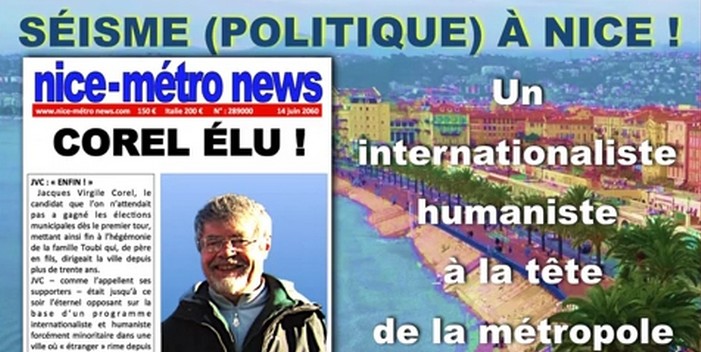Today, with identity fashion, we find ourselves as Gauls, or Nissart. Beyond these extravagances without historical realities, Patrick Mottard presents us with a play where the fanatics of “nissartitude,” socca, arguing over the composition of pan-bagnat, are neatly put in their place.
The foreigner is always the culprit, which is very convenient for shifting the blame onto others. There always needs to be a scapegoat to excuse our mistakes. If a politician riding the wave of identity crisis talks to us about the Gauls, besides his mistake, he stirs up hatred and racism. Here, in this play, everything is brought back to Nice.
A new mayor wants to broaden the horizons of the people of Nice beyond socca and sterile quarrels over the composition of pan-bagnat or salade niçoise.
Nice became a capital of tourism thanks to foreigners after the annexation of 1860, and that should not be forgotten. Nice, a city of the world, this mayor had a noble objective, and even if the play revolves around the exchange of monuments, we must look beyond these improbable exchanges.
This play is a humanistic message, a call to reason, to avoid retreating into ourselves. The Christ the Redeemer of Rauba Capeû is a message of peace, love, and sharing, three virtues that are greatly threatened today.
Thank you, Patrick Mottard, for offering the masses an alternative horizon to that of identity withdrawal. May Jacques Virgil Corel, a subtle pun understandable only by the people of Nice, become a reality.
Thierry Jan


